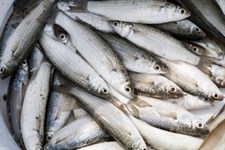The Competition Commission's "dogged insistence" that the Glenryck canned pilchards brand - owned by Foodcorp - be sold off with Foodcorp's allocated small pelagic fishing quota to gain approval for a transaction with Oceana was placing 1,000 jobs at stake, the merging parties told the Competition Tribunal yesterday, 20 January 2014.
Oceana and Foodcorp are challenging the conditions set by the commission for approval of the transaction. Oceana wants to acquire Foodcorp's fishing business.
The commission insisted that the Glenryck brand, competing with Oceana's Lucky Star brand, be sold to a third party, along with its supply of fish, which is allocated by the Department of Agriculture, Fisheries and Forestry.
David Unterhalter (SC), representing the merging parties, argued before the tribunal that the commission was tiptoeing around the fact that there was a signed agreement with Bidvest Namibia Fisheries (Bidfish) to buy Glenryck as a standalone business. Bidfish had an ample supply of fish through its Namibian fishing rights to support Glenryck.
He said the commission was also ignoring the fact that a processing facility, owned by Foodcorp, was at stake, and 1,000 people were at risk of losing their jobs. Oceana was willing to take over the facility and the people, but it needed the quota to make the facility a viable business. Oceana would not consider taking the facility without the quota.
Greta Engelbrecht, the advocate for the commission, said the two brands were the closest competitors in the market and had a combined market share of over 80%, compared with about 10% of the next closest competitor. The transaction would lead to the removal of an effective competitor in the market.
She said the commission considered the proposal that the merging parties sell the Glenryck brand but keep the small pelagic fish quota allocated to Foodcorp. However, the commission was convinced that the sale of the Glenryck brand alone would not address its concerns.
"The commission formed the view that having a strong brand is important to compete in the industry, but having access to the fish quota allocation is equally, if not more, important."
Engelbrecht said the commission has not considered the Bidfish transaction, and the fact that an offer had been made did little more to confirm there were parties willing to purchase the brand without the quota. Even if Glenryck remained a competitive brand, supported with supplies by Bidfish, Oceana would have an increased ability to supply product and would obtain greater market power at retail level.
Unterhalter said no matter how many fishing rights Oceana obtained, it would have little effect on processing capabilities due to structural overcapacity in processing. It could not exclude anyone from getting processing capacity, he said.
Lucky Star MD Rhodes Harrison said the rationale behind the transaction was to obtain the 11% quota allocated to Foodcorp to diminish its dependence on imports.
He said the 11% allocation would be used instead of imports, effectively keeping the market as it is.
Source: Business Day








































